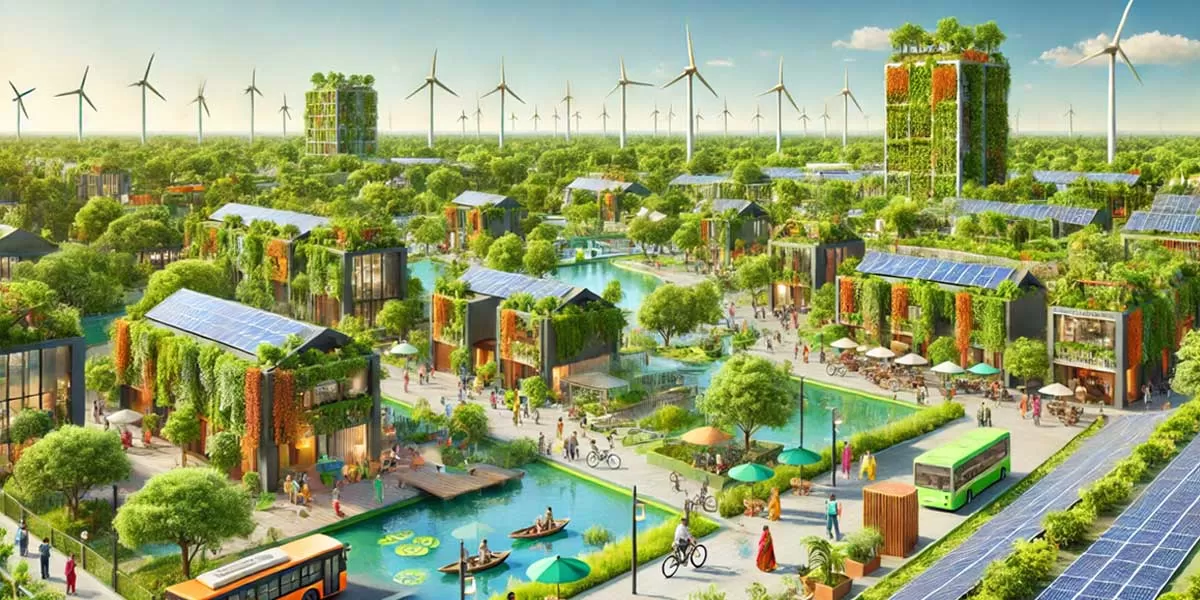Big Boost - The World Bank has approved $ 1.5 billion for low carbon energy for India. PRATAP PADODE, Founder FIRST Construction Council explores…
What are the greatest innovations of the 21st century? While many advocate for AI or Artificial Intelligence, Green Energy may be on the cusp of a significant breakthrough. The 21st century has been defined by an urgent need to tackle environmental challenges. Consequently, innovations in sustainable technology have gained prominence as businesses and consumers alike recognize the importance of protecting the planet. Green tech is not just a buzzword but is also attracting significant investment. Elon Musk’s billion-dollar fortune is largely due to the valuation that Tesla enjoys as an automobile company leveraging green technology. The World Bank’s Board of Executive Directors has just approved $1.5 billion in financing for a second operation to help India accelerate the development of low-carbon energy. The operation will seek to promote the development of a vibrant market for green hydrogen, continue to scale up renewable energy, and stimulate finance for low-carbon energy investments.
India's commitment to renewable energy is evident in its ambitious targets, aiming for 500 GW of renewable energy capacity by 2030. The country has seen a surge in solar and wind energy projects, supported by investments from both domestic and international sources. The rise of green finance in India has created a variety of opportunities for investors and businesses. Various financial instruments, including green bonds and sustainable investment funds, are gaining significance. Recently, REC Ltd issued green bonds with maturities of 5 years, 5.25 years, and 10 years as part of its US$ 10 billion Global Medium Term Notes Programme. These instruments enable investors to allocate funds to projects that support renewable energy generation, enhance energy efficiency, and advance other environmentally sustainable initiatives. India achieved a milestone by adding over 10 GW of solar capacity in the first quarter (Q1) of 2024, marking the highest quarterly installation to date.
The Business Responsibility and Sustainability Report (BRSR) introduced by the Securities Exchange Board of India mandates that the top listed companies by market capitalization must provide ESG (Environment, Social & Governance) reporting. Companies are required to account for the impact their value chain has on the environment. It consists of a set of key performance indicators (KPIs) under nine ESG attributes, further broken down into over 40 sub-indicators that relate to an organization’s non-financial performance. These nine ESG attributes include greenhouse gas (GHG) emissions, water and energy footprint, embracing circularity, enhancing employee well-being and safety, promoting gender diversity in business, enabling inclusive development, fairness in engaging with customers and suppliers, and transparency in business operations. Authorities have provided a ‘glide’ path, with increasing compliance stringency over the next few years. Apart from the reporting requirement, organizations need to assess sustainability in construction. Measures could include using cement and steel manufactured with renewable resources, cement companies accounting for diesel fuel savings by using electric vehicles for transport, road contractors using steel slag for road construction, site lighting from solar lamps, or employing hybrid or all-electric construction equipment and environmentally friendly methods for disposing of construction waste. All these measures would earn carbon points. EPC companies operating on thin margins will welcome these measures when they see carbon economics working in their favour. This could take the form of lower interest on loans extended to EPC companies that score well on ESG, investments from Green Funds in the share capital of such companies, or lower import duties for importing from countries imposing higher duties on companies with low ESG scores.
All this is evolving, and there is no hard deadline yet. Recognizing sustainable construction could be the first step. The new government’s first 100 days have been marked by a bonanza as the RBI declared a Rs 2.1 trillion dividend. In its post-election budget in July, the new government might choose to maintain the current deficit target for FY25 and further boost spending on infrastructure, or it could use the entire fund to reduce borrowing costs, or a combination of both. Chances are that infrastructure will benefit as well.




















